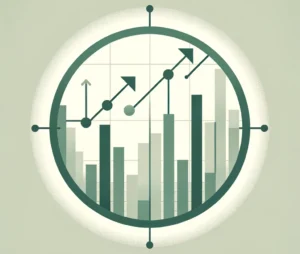Have you ever found yourself deep in a television crime series, marveling at the forensic scientists as they piece together the puzzle of a crime scene? It’s easy to get captivated by the idea of uncovering hidden truths and solving mysteries that seem unsolvable. Yet, when the credits roll and reality sets in, you might wonder if a career in forensic science is as glamorous as it appears on screen. If you find yourself teetering on the edge of curiosity and practicality, wondering if this career path is truly for you, you’re not alone.
This blog will delve into the realities of a forensic science career, beyond the dramatized scripts of popular media. From discussing the true nature of the work, to the potential for growth and the hurdles you might face, we’re here to provide you with a clear perspective.together.
Quick Takeaways:
- Forensic science careers require a strong educational background in sciences and continuous upskilling to stay ahead in the field.
- Job growth is promising, but be ready for the emotional and physical demands of working closely with crime scenes.
- Specializing in niche areas, like digital forensics, can significantly enhance your career prospects and marketability.
What Does a Forensic Scientist Really Do?
When you peek behind the curtain, the life of a forensic scientist is far from the glamorized montage often seen on TV. In actuality, it involves a meticulous blend of science and investigative work. Forensic scientists gather and analyze physical evidence from crime scenes, ranging from DNA and blood samples to firearms and digital footprints. They meticulously document their findings, which often play a pivotal role in legal proceedings. Far from the solitary figures often depicted in dramas, these professionals frequently collaborate with law enforcement and legal teams, offering testimony in court as expert witnesses.
Is Forensic Science in High Demand?
Yes, and here’s why. The Bureau of Labor Statistics (BLS) projects a 14% growth in forensic science technician jobs from 2019 to 2029, much faster than the average for all occupations. This spike can be attributed to a growing reliance on forensic evidence to solve crimes and the continuous advancements in science and technology enhancing the accuracy and reliability of forensic analyses.
Another factor fueling demand is the public’s expectation for quick and efficient justice, partially influenced by the ‘CSI effect’, where the portrayal of fast-paced forensic science on television has raised expectations for real-life criminal investigations.
However, keen to note is that the demand can vary greatly by region, dependent on government funding and the specific needs of local law enforcement agencies. Aspiring forensic scientists should research their local job market or consider relocating to areas with higher demand for their skills.
Check out the latest BLS data here
What Skills and Qualifications Do You Need?
The path to becoming a forensic scientist is paved with a blend of solid education and hands-on experience. Let’s break it down:
Educational Background
At a minimum, you’ll need a bachelor’s degree in a field like forensic science, biology, chemistry, or a closely related field. Some positions, especially those in more specialized areas, might require a master’s degree. Unique to this profession, the academic journey intertwines theoretical knowledge with practical skills. Labs and internships are integral, offering real-world experience even before you’ve stepped foot into the job market.
Necessary Skills
- Analytical skills: The bread and butter of a forensic scientist. You’ll be piecing together evidence to form a coherent picture of the crime.
- Attention to detail: Overlooking a single fiber could mean the difference between solving a case or letting it go cold.
- Communication: Articulating your findings to non-scientists, like law enforcement officers or jurors, is crucial.
- Critical thinking: You’ll often need to determine the most important piece of evidence and the best method for analyzing it.
Certifications and Training
While not always required, certifications can give you an edge in the job market. The American Board of Criminalistics (ABC) offers various certifications that are well-regarded in the field. Moreover, ongoing training is part of the deal. As forensic technology evolves, so must your expertise. Training programs and workshops offered through professional associations are invaluable for staying current.
Learn more about ABC certifications here
And here’s a golden nugget you won’t find just anywhere: Digital Forensics. With the surge in cybercrimes, specialists in digital forensics are becoming increasingly valuable. Consider diving into courses or certifications in digital forensics to stand out in the job market. This niche skill could open doors to roles not just in crime labs, but also in private corporations and cybersecurity firms, reflecting the evolving nature of crime and, consequently, its investigation.
So, if you’ve got a keen eye for detail, a passion for science, and a steady nerve, a career in forensic science might just be your calling. It’s a field that promises growth, challenges, and the immense satisfaction of contributing to the justice system. The journey requires dedication and hard work, but for those fascinated by the intersection of science and law, it’s an utterly rewarding path.
How Does Career Growth Look in Forensic Science?
When diving into the world of forensic science, it’s crucial to keep your eyes on the prize: career growth. What does that look like in this fast-paced and ever-evolving field? Well, buckle up because I’m about to give you the lowdown.
Climbing the Ladder
First things first, climbing the career ladder in forensic science is no different than in other fields—it requires hard work, dedication, and a bit of savvy networking. But here’s where it gets interesting. Due to the diverse nature of the field, forensic scientists have the opportunity to specialize in areas ranging from DNA analysis to digital forensics, opening up a variety of pathways to professional development and upward mobility.
Specialization is Key
Specializing in a niche area can set you apart from your peers. Forensic entomology, forensic pathology, and forensic anthropology are just a few areas where you can make your mark. The more specialized your skills, the higher your demand in the market.
Continuous Learning
The field of forensic science is always on the move with new technologies and methodologies. Staying on top of these changes through continuous learning is not just beneficial—it’s essential. Certifications, advanced degrees, and regular training sessions can propel your career forward, giving you a competitive edge.
Career Paths Available
Here’s a sneak peek at some of the exciting career paths available for forensic science specialists: – Crime Scene Investigator: The frontline heroes of crime scenes, gathering crucial evidence. – Forensic Chemist: Analyzing non-biological substances to support investigations. – Forensic Biologist: Specializing in DNA and other biological analyses. – Digital Forensics Analyst: Unraveling the mysteries hidden in digital devices. – Forensic Psychologist: Applying psychology to understand the criminal mind.
Remember, it’s not just about the title; it’s about finding a role that challenges you and matches your passion within the forensic science landscape.
What Are the Challenges of Working in Forensic Science?
Let’s flip the script and talk about the not-so-glamorous side of forensic science. It’s not all about catching the bad guys and solving puzzles—this career comes with its fair share of challenges.
Job Pressures
The clock is always ticking in the world of forensic science. There’s a constant race against time to process evidence, which can create significant job pressure. Deadlines are tight, and the stakes are high—after all, the outcome of your work could be pivotal in a criminal case.
Emotional Demands
Working with the aftermath of crimes means you’re exposed to the darker side of human nature. This can be emotionally taxing and sometimes leads to burnout. It’s crucial to have strong coping mechanisms and a support system in place to navigate these turbulent waters.
Physical Demands
Depending on your specialization, you might find yourself standing for long hours in a lab, or at a crime scene, which can be physically demanding. Added to this, some might have to deal with the unpleasant task of examining decomposed remains, which is not for the faint-hearted.
Impact on Personal Well-being
This is where things can get a bit tricky. The mental and emotional toll of working in forensic science can affect your personal well-being and relationships. It’s a juggling act, balancing the demands of the job with your personal life.
The Unique Challenge: Keeping Up with Technology
Here’s something that often flies under the radar: forensic scientists need to constantly upskill to keep up with technological advances. This isn’t just about learning how to use the latest equipment; it’s about understanding the implications of new technologies on crime-solving techniques. A unique angle to consider is the role of artificial intelligence in forensic science, which is revolutionizing the field. Embracing and mastering these technological advancements can set you apart.
In closing, while a career in forensic science offers a fascinating and rewarding journey, it’s not without its hurdles. But don’t let that deter you. With the right mindset and preparation, you can navigate these challenges and carve out a successful path in this intriguing field. Remember, it’s the challenges that often make the victory sweeter. So, are you ready to take on the world of forensic science?









